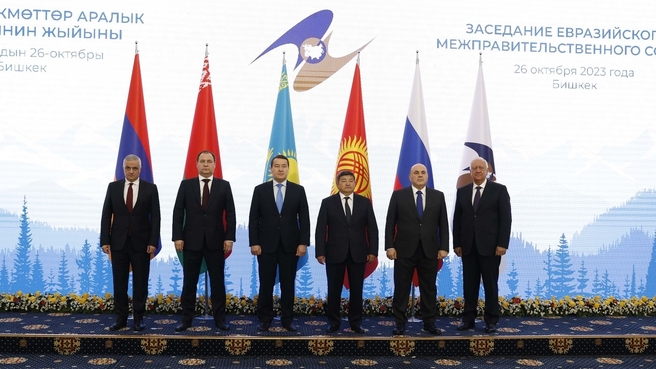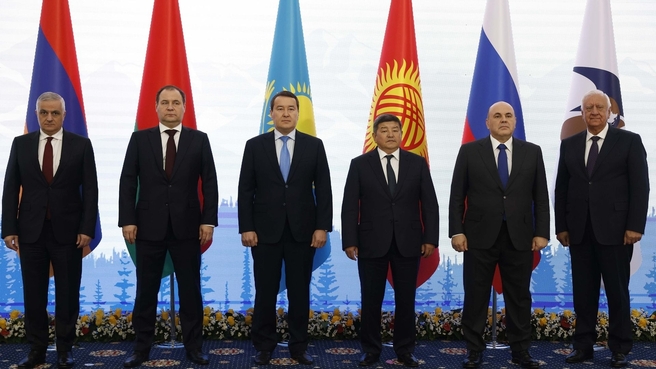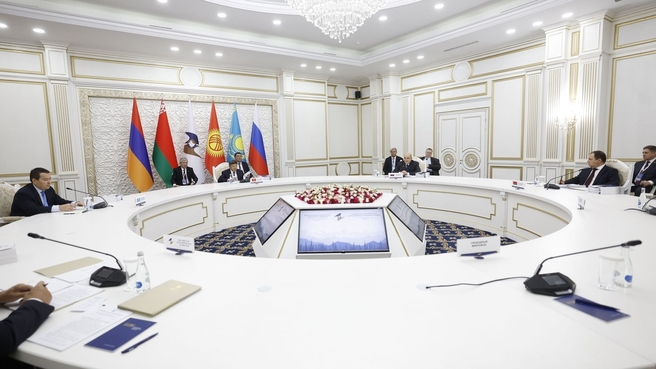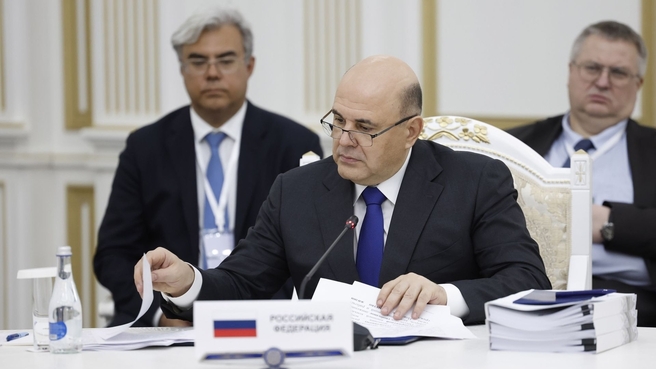The meeting of the Eurasian Intergovernmental Council is taking place under the auspices of Russia’s chairmanship of the EAEU in 2023.
List of delegation heads taking part in the meeting of the Eurasian Intergovernmental Council:
Deputy Prime Minister of the Republic of Armenia Mher Grigoryan;
Prime Minister of the Republic of Belarus Roman Golovchenko;
Prime Minister of the Republic of Kazakhstan Alikhan Smailov;
Comment
Prime Minister of the Kyrgyz Republic – Chief of Staff of Kyrgyzstan’s Presidential Executive Office Akylbek Japarov;
Prime Minister of the Russian Federation – Chairman of the Eurasian Intergovernmental Council Mikhail Mishustin;
Chairman of the Eurasian Economic Commission Board Mikhail Myasnikovich.
Mikhail Mishustin’s remarks:
Colleagues, good afternoon.
I would like to begin by thanking our friends from Kyrgyzstan for the brilliant organisation of this summit, including today's restricted meeting of the Eurasian Intergovernmental Council. We will discuss our interaction on key aspects of our continued integration.
Russia is chairing the EAEU bodies this year. Today, we will consider the initiatives that President Vladimir Putin has identified as priorities, which primarily include digital transformation in the five member states and strengthening their technological sovereignty.
We have made progress on most of those initiatives and we have a shared vision of what still needs to be done to make these ideas a reality. We all agree that in the long run, our joint activities should have a tangible positive effect on our citizens and business representatives, should facilitate growth of key industries and improve key economic indicators. These are the aspects that our discussion will focus on.
The Eurasian Economic Union is becoming one of the centres for the formation of a multipolar world. It has proven its relevance and resilience to external challenges and global problems. Since the EAEU was created, its five member countries have nearly doubled their mutual trade, and their industrial production has grown 20 percent. Other industries are showing strong performance as well, including construction, agriculture, cargo shipments by all modes of transport, and fixed investment.
It is essential to continue making joint efforts to promote sustainable development of national economies despite the unfavourable external conditions, to ensure free movement of goods, services, investments and labour – and ultimately, to improve the quality of life of our citizens.
















